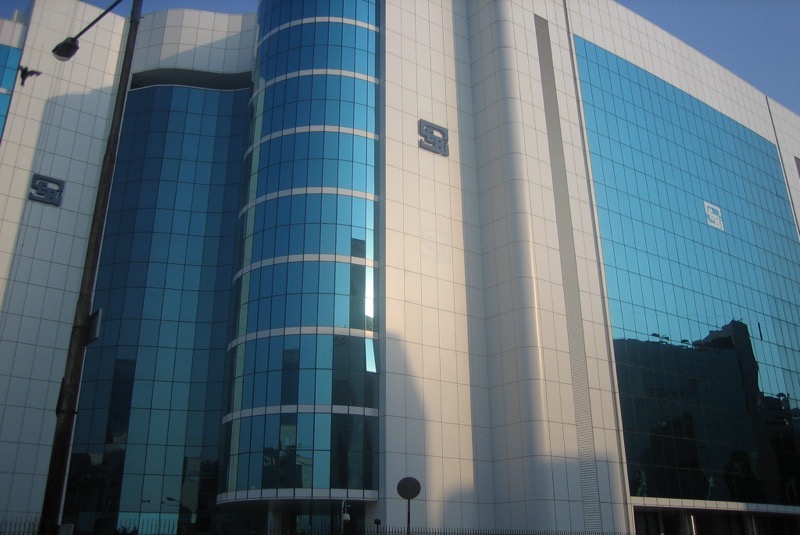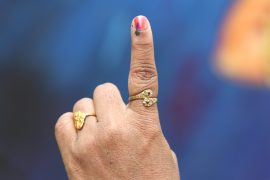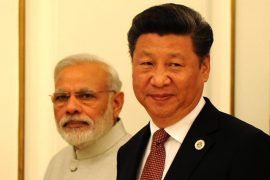Hindenburg, the US forensic financial research firm that is also a short-seller, stirred a hornet’s nest with fresh allegations in the ongoing saga against the Indian Adani conglomerate. The latest is pertinent to the probity of the incumbent Securities and Exchange Bureau of India (SEBI) chairperson, Madhabi Puri Buch, and her conflict of interest in having links to obscure offshore funds used by the controversial Adani Group in the money siphoning scandal.
The Hindenburg Report – the sensational 106-page document – first published on 23 January 2023 created an uproar in the corporate world and rocked the Indian stock market when it accused the Indian behemoth of conning the Indian industry and its stakeholders. After two years of research, Hindenburg accused Adani Group of brazen stock manipulation of its ten publicly traded companies and engaging in sordid accounting fraud for decades. Adani Group stocks suffered a meltdown of over $150 billion in market value in the days following the publication of the initial report.
On 10 August 2024, the Hindenburg Report revealed new details alleging that Madhabi Puri Buch and her husband Dhaval Buch made investments in the Global Dynamic Opportunities Fund, registered in Bermuda, that had sub-funds. Both these domiciles are tax havens. They invested in one of these sub-funds, IPE Plus Fund 1, registered in Mauritius and, according to Financial Times, were used by entities with close ties to Adani Group to trade in the shares of group companies. Madhabi and her husband invested in 2015 and exited in 2018, before her appointment in 2015 as a whole-time member (WTM) and subsequent elevation as the chairperson in 2022.
These funds were managed by Indian Infoline (IIFL), currently rechristened as 360 One. The IIFL is a publicly listed wealth management company infamous for setting up a convoluted fund structure. They were charge-sheeted in the Wirecard Scandal, which, incidentally, is Germany’s largest ever financial fraud case, and a Financial Times article covers IIFL fighting litigation in London courts. This raises an important question: why did the SEBI chairperson choose to invest in shady and opaque offshore funds with dubious credentials when highly reputable and credible onshore funds are available in India?
Citing whistleblower documents, it added that a company controlled by Vinod Adani—an elusive figure and brother of the chairman Gautam Adani—had also invested in Global Dynamic Opportunities Fund, which in turn had invested in IPE Plus Fund 1. Hindenburg alleges that Vinod Adani used these offshore entities to manipulate financial markets. Hindenburg also states that this conflict of interest could have prevented the chairperson from conducting a thorough inquiry into the alleged irregularities and financial misconduct of the Adani Group.
The Securities and Exchange Board of India (SEBI) hasn’t concluded its investigations into the Adani Group, which the Supreme Court observed and directed for expediting a closure. It was even mentioned in a Supreme Court Expert Committee Report that SEBI had “drawn a blank” and “hit a wall” in the investigation related to the contributors of the Adani Group’s offshore shareholders.
Furthermore, a letter for redeeming the fund, purportedly sent by her husband—post appointment in SEBI as her whole-time member (WTM)—had her personal email, an infringement on the SEBI employee compliance and disclosure laws. Why did the email not change? In another breach of contract, Hindenburg released another email she personally wrote to India Infoline on 25 February 2018, ostensibly conducting business in her husband’s name, requesting to redeem the units of the fund.
The report also mentions a consultancy named Agora Partners, which has branches in Singapore and India and is owned by Madhabi Buch. She had a 100 per cent shareholding interest in the Singaporean entity from April 2017 to March 2022.
On appointment as chairperson, she transferred the ownership rights to her husband in the Singaporean entity but still retains 99% ownership in the Indian branch of Agora Advisory Private Ltd. In a public statement, the couple categorically stated that the Indian entity had become dormant on her appointment, but Hindenburg research has shown it to be still active. The report shows that the revenue generated in the financial year ending 2022 was INR 19.8 million for the Indian consultancy arm, which is 4.4 times her designated salary in SEBI.
The discerning public has to determine whether such interests held by someone at the helm of India’s apex regulator wouldn’t amount to a conflict of interest. And the disinformation from a responsible government servant?
The meteoric rise of the Adani Group is inextricably linked to the Prime Minister of India, Narendra Modi. The loyalty and friendship between Gautam Adani and Narendra Modi started before Modi became the chief minister of Gujarat, and ever since, he has been instrumental in the growth of the conglomerate.
Promoting Adani Group as one of the “national champions,” corporate India is witnessing one of the most insidious periods of crony capitalism in its history. It is an open secret that the laxity of regulatory agencies like SEBI and their flagrant oversight of scrutiny of the Adani empire is due to the nexus between the two.
But for the connivance of the authorities, how could regulatory bodies escape the services of a notorious stock manipulator called Ketan Parekh—incidentally convicted and banned in 2003 for 14 years from trading—at the behest of Adani Group promoters to manipulate Adani shares?
To put things into perspective, the operating income for Adani Group had been a modest 4.2 per cent of total revenues between 2015 and 2021 and 3.6 per cent in the years since. Since 2015, the group embarked on an acquisition spree. Though revenue growth surged, the margins have been modest as their acquisitions were mostly in low-margin sectors and enterprises.
The most critical and commonly used metric for evaluating share prices, the Price-to-Earning Ratio (PE Ratio), was 34 until 2015, 15 until 2021, and a staggering 214 since for Adani Group. At its peak, Adani Enterprises had a mammoth PE Ratio of 427!
Such an astronomical surge for a conglomerate engaged primarily in staid infrastructure, commodity, and energy sectors belies all business fundamentals and accounting standards. Generally, high PE Ratios are witnessed in companies involved in cutting-edge technology industries, where disruptive innovations have redefined technology and societies in unprecedented ways altogether.
When Apple became the first trillion-dollar company in US history in August 2018, its PE Ratio was 18.04, slightly higher than Exxon Mobile – a torchbearer of the ‘old-age economy’ – at 16. That year, Netflix had the highest PE Ratio at 157 and was regarded as fanciful. For the big tech giants Alphabet, Facebook and Amazon, the PE Ratios in the same year were 53, 26 and 153, respectively. How did this conspicuous anomaly escape SEBI’s radar?
The skyrocketing share prices of Adani group since 2021 evidently had to be due to some interventional malpractices. Adani family owns 73 per cent of Adani Group shares in its publicly traded companies. As per regulation, the 27 per cent free float is marginally higher than the 25 per cent stipulated by Indian regulators.
The Hindenburg Report has unravelled anomalies in the 27 per cent shareholding structure, which they allege is owned by Adani insiders. This information was corroborated by investigations of the Organized Crime and Corruption Reporting Project (OCCRP), and those exclusive documents were shared with the Financial Times and The Guardian.
If the escalation of share prices doesn’t bring substantial rewards to the family and cronies trading with each other, then the higher valuation is only meant to obtain debt collateral to finance their expansion through acquisition overdrive. All these irregularities were happening under the nose of the regulatory agencies in India, which they chose to ignore, plausibly due to political persuasions and compulsions of the incumbent NDA administration.
It is disconcerting to note that neither the SEBI board nor the Finance Ministry, under which it is administered, has issued substantive press releases on the new Hindenburg Report, considering the gravity of the allegation. Instead, a host of influencers sympathetic to the ruling party are seemingly deployed to defend the chairperson and undermine the credibility of Hindenburg.
India, home to one of the most prominent capital markets in the world, will find its credibility diminished when accountable institutions remain silent or complacent. Hindenburg was served with a show cause notice (SCN) for flouting Indian regulatory laws when it didn’t have any operations, employees, consultants, or partners in India. And they haven’t concealed the fact that they engage in short selling of overinflated financial instruments.
SEBI has yet to implicate the Adani Group in any wrongdoing despite the whistleblower documents released in January 2023. The common refrain from the ruling party to suppress opposition parties’ demands of a joint parliamentary committee (JPC) probe is to invoke slogans like “anti-national,” “Indian sovereignty under attack”, or propagandist maligning of Indian businesses by external actors in a shining India.
Hindenburg also states and elucidates the names of at least 40 media outlets that have conducted independent inquiries and ratified their findings on malfeasance in Adani Group. Killing the messenger to protect the perpetrator is not an appropriate strategy when incidences of fraudulent activities and corruption are exposed.
-30-
Copyright©Madras Courier, All Rights Reserved. You may share using our article tools. Please don't cut articles from madrascourier.com and redistribute by email, post to the web, mobile phone or social media.Please send in your feed back and comments to [email protected]











